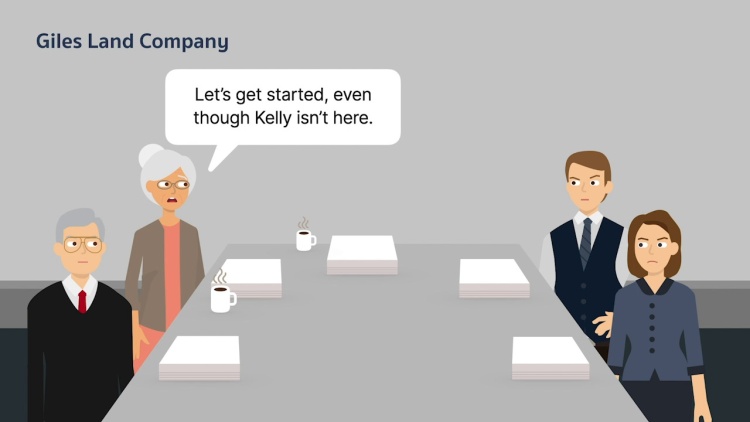Giles v. Giles Land Company
Kansas Court of Appeals
279 P.3d 139 (2012)

- Written by Sean Carroll, JD
Facts
Giles Land Company, L.P. (the partnership) (defendant) was a family-owned farming company. The partners were all related. The partnership held a meeting to consider converting the partnership to a limited-liability company (LLC). One of the Giles children, Kelly (plaintiff), was unable to attend the meeting but later received notice of the partnership’s decision to convert to an LLC. Kelly formally requested the partnership’s books and records for his review. He was not satisfied with the books and records turned over, so he brought suit against the partnership and the other partners (defendants), claiming that he was improperly denied access to the books and records. The defendants filed a counterclaim, arguing that Kelly should be dissociated from the partnership. The defendants presented evidence that Kelly had threatened them and that the family relationship was broken beyond repair. The defendants also presented evidence that they did not trust Kelly and vice versa. The trial court ruled in favor of the defendants on all counts, finding that it was not practicable to continue the partnership with Kelly as a partner. Kelly appealed the trial court’s order regarding his dissociation from the partnership to the Kansas Court of Appeals, arguing that he had not engaged in conduct relating to the partnership.
Rule of Law
Issue
Holding and Reasoning (Green, J.)
What to do next…
Here's why 907,000 law students have relied on our case briefs:
- Written by law professors and practitioners, not other law students. 47,100 briefs, keyed to 996 casebooks. Top-notch customer support.
- The right amount of information, includes the facts, issues, rule of law, holding and reasoning, and any concurrences and dissents.
- Access in your classes, works on your mobile and tablet. Massive library of related video lessons and high quality multiple-choice questions.
- Easy to use, uniform format for every case brief. Written in plain English, not in legalese. Our briefs summarize and simplify; they don’t just repeat the court’s language.





